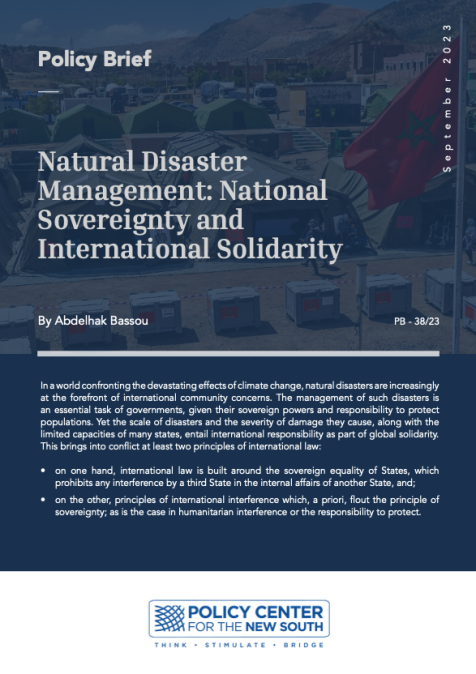Publications /
Policy Brief
In a world confronting the devastating effects of climate change, natural disasters are increasingly at the forefront of international community concerns. The management of such disasters is an essential task of governments, given their sovereign powers and responsibility to protect populations. Yet the scale of disasters and the severity of damage they cause, along with the limited capacities of many states, entail international responsibility as part of global solidarity. This brings into conflict at least two principles of international law:
- on one hand, international law is built around the sovereign equality of States, which prohibits any interference by a third State in the internal affairs of another State, and;
- on the other, principles of international interference which, a priori, flout the principle of sovereignty; as is the case in humanitarian interference or the responsibility to protect.









